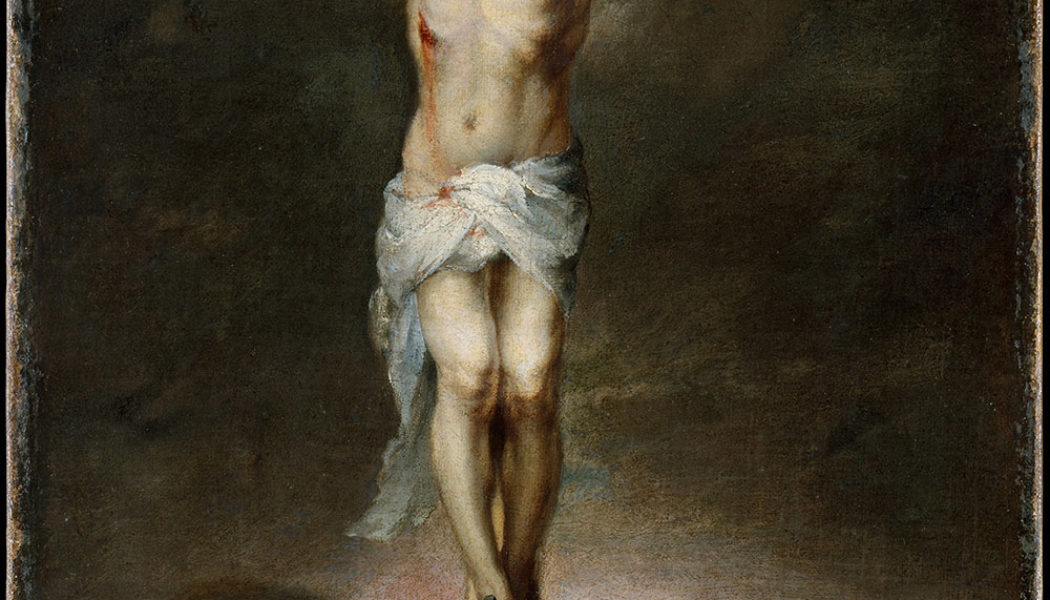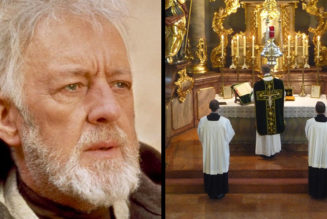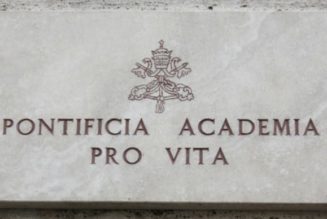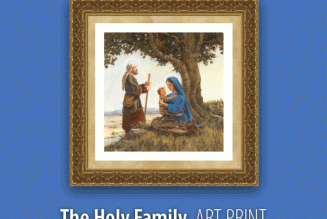During the Lenten season, an austere time of the desert, we keep our eyes fixed on Christ crucified. The focus is not on the “no” of penance, but the “yes” of love that comes from sacrifice. Jesus models this for us and even invites us into it, especially from his throne of the Cross. He invites us to enter into his kingdom through forgiveness, humility, trust and love. As he speaks to us from this vantage point over all of human history, looking out into the abyss of our sin and suffering, he calls us through his Seven Last Words to participate in his own sacrifice. Through our response, we are pulled out of our misery to reign with Christ, dying to ourselves in order share in the glory of his resurrection.
Christ’s Seven Last Words constitute one on the greatest Lenten meditations. Many saints have taught us their depth, and my own short reflections here should serve only to point you to deeper reflection. Consider reading Ven. Fulton Sheen’s own meditations or listen to Haydn’s arresting musical adaptation.
1. “Father, forgive them, for they know not what they do” (Luke 23:34).
These words could express the entirety of Jesus’s saving action. We all have crucified him through our sins, and yet he prays for us and offers his life for our forgiveness. His life itself is salvation, a rescue mission of love in which he allows himself to be rejected by his own people in order to draw them out of slavery. Having experienced his mercy, he calls his disciples to show it to others. At the Last Supper, he tells them, “That you also should do as I have done to you … that you love one another; even as I have loved you, that you also love one another” (Jn 13:15, 34). Loving and praying for one’s enemies proves our love and manifests God’s love to others, passing on the forgiveness we have received.
2. “Truly, I say to you, today you will be with me in Paradise” (Luke 23:43).
Jesus is not just offering forgiveness through his work of redemption; he is drawing us into a new creation, “born, not of blood nor of the will of the flesh nor of the will of man, but of God” (Jn 1:13). Through the gift of his life, he has created a new garden, an eternal paradise, watered from the blood flowing forth from his side. It is an everlasting “today” in God’s own eternal life. We are all in the place of the thief, and Jesus speaks to us personally from the Cross, calling us into this everlasting today with him.
3. “Woman, behold, your son! . . . Behold, your mother!” (John 19:26–27).
– Advertisement –
On the Cross, Jesus offers all that he has and all that he is. We are drawn into that offering, being presented to the Father in Christ. We also receive all that Jesus has by being incorporated into his mystical body. He gives us his flesh and blood to eat as our spiritual food. He gives us his own divine Spirit to dwell in us as a Temple, leading us to the Father in prayer. He also gives us his Mother as our own mother, as we are members of the Body to which she has given birth, asking us to take her into our home like John, the beloved disciple. In this act of love, he makes known to us that he holds nothing back, and his surrender of all is also a gift and invitation to us.
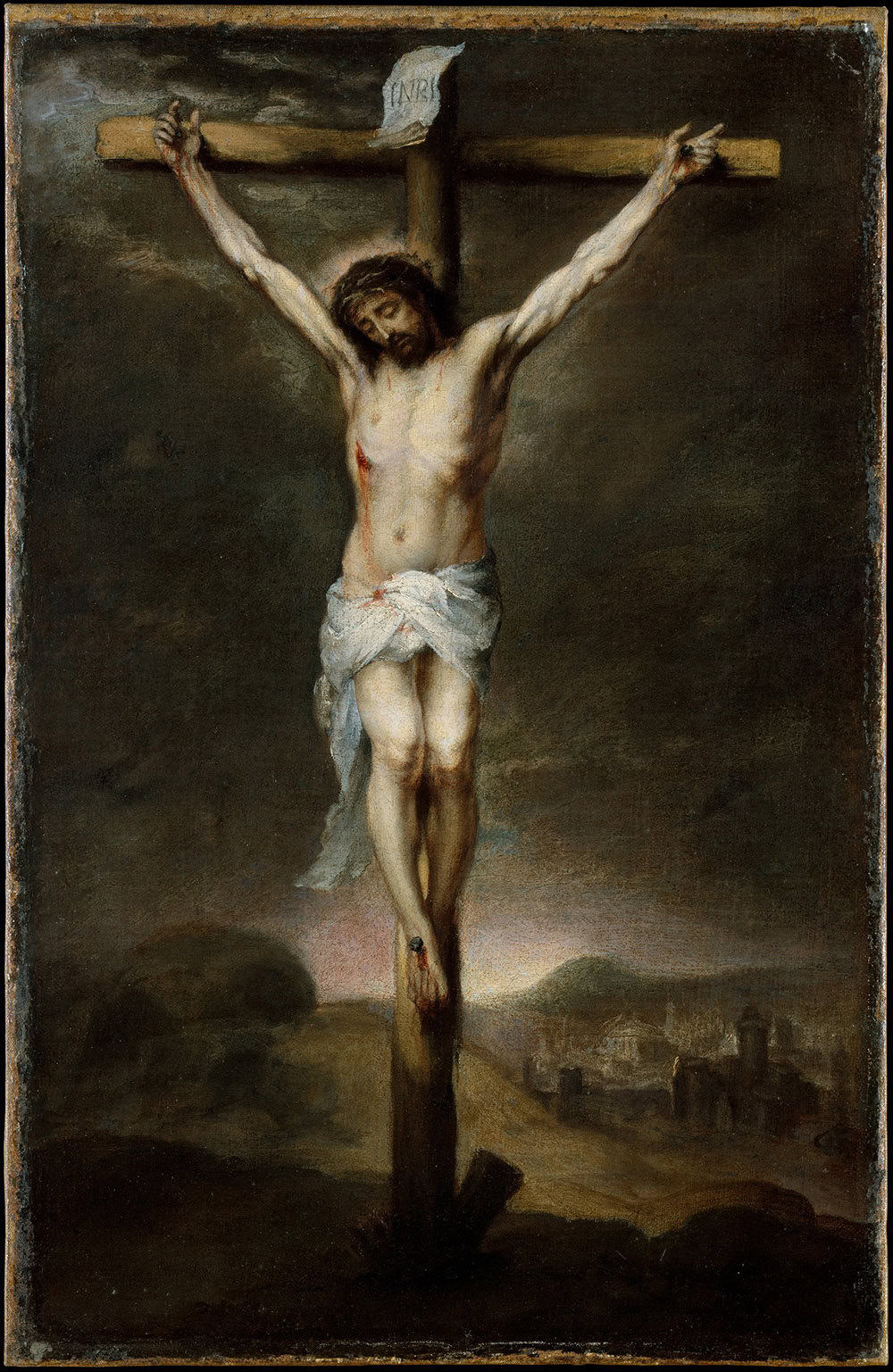
4. “My God, my God, why hast thou forsaken me?” (Matthew 27:46; Mark 15:34).
In Galatians 3:13, St. Paul quotes Deuteronomy 21:23: “Cursed be every one who hangs on a tree,” noting that Jesus took on the curse that rightly belongs to us. Jesus is abandoned by the Father in that he has followed the Father’s will in being handed over to sinners. He is abandoned to death, even as he voluntarily takes on all the sin and suffering of fallen humanity, bearing this weight and offering himself as a sacrificial victim, a paschal lamb so that we might be spared from eternal death. In this moment, he has never been closer to the Father. Even though his entire life was an act of perfect obedience, he now offers it completely, to the last drop of blood, in complete and perfect obedience and love. He likewise calls his disciples to take up their own crosses and to die to themselves, joining their own sufferings to his abandonment on the Cross.
5. “I thirst” (John 19:28).
In his abandonment, Jesus reveals his thirst. He told his disciples at the Last Supper that he would “not drink again of this fruit of the vine until that day when I drink it new with you in my Father’s kingdom” (Mt 26:29). He thirsts for this drink with us, this new cup of salvation that flows forth from his own side. He thirsts for us to join him in receiving his gift, to desire this gift more than anything else. This may be his strongest invitation from the Cross, calling us into the new wine he offers us in his hour that will transform us (see John 2).
6. “It is finished” (John 19:30).
In Latin, this phrase is “consummatum est,” which is rich in meaning. It refers to the debt being paid in full, the fulfillment of the Old Covenant, the completion of the sacrifice, the complete gift of self to the bride. In return, Jesus asks for the complete acceptance of this gift. He wants our entire life in return, not simply a portion of our thoughts, our affections, our time and our work. He invites us to respond with, “I have given you all, the whole of my life,” so we can say back to him at the end of our lives, “it is consummated.”
7.“Father, into thy hands I commit my spirit!” (Luke 23:46).
Why is there another word after the finish? Jesus shows us the whole purpose of his sacrifice, of human life in general, is the Father. He is the goal of salvation. Jesus has given everything to him, including all of us. He will bring us to him, reconciling us to him and giving us adoption as sons in him, the Son. Everything Jesus said and did, he said was given to him by the Father. In this final word at the moment of his death, he shows us once again: everything is from and for the Father. This is the goal of his mission and his ultimate invitation for us: come to the Father with me, share in the Father’s life with me, rejoice in the Father’s love forever.
